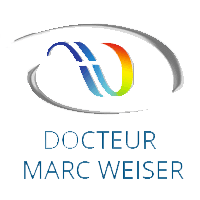Absolutely not. Glaucoma simply means damage to the optic nerve in correlation with intraocular pressure rise. There is a threat of blindness in case of late detection and / or insufficient treatment. No visual symptoms can indeed alert; glaucoma can only be early detected by the measurement of intraocular pressure.
If glaucoma is detected early enough and properly controlled, it may have no effect at all on visual function.
Open-angle glaucoma is schematically related to a decrease in the permeability of the trabeculum, the area of the eye where the aqueous humor is evacuated. It causes an insidious increase in intraocular pressure and may go unnoticed for a long time if not detected early enough.
Closed-angle glaucoma is mainly seen in hyperopic patients. It is due to iridocorneal angle closure; the iris then obstructs the evacuation of the aqueous humor. It can be discovered in the same way by an insidious increase in intraocular pressure and may go unnoticed for a long time if it is not detected early enough; this is called chronic angle-closure glaucoma.
It can also result in a sudden and very painful increase in intraocular pressure that threatens vision in the short term and requires emergency surgery; it is called closed angle acute glaucoma. This threat can be detected by depth of the anterior chamber and iridocorneal angle measurements at the slit lamp; its occurrence is then prevented by laser iridotomy; this procedure consists in performing a small hole in the iris which acts as a bypass valve and which protects the patient from any risk of acute glaucoma for all life long.
Yes, regardless of age and health, for in nearly all patients the procedure is performed under local anaesthesia.
Any patient with unbalanced glaucoma should have surgery performed in order to prevent progression of the disease and irreversible deterioration of visual function.
Usually no. It is preferable to perform glaucoma surgery on one eye and wait before perform surgery on the fellow eye.
Nevertheless both eyes can be operated in a short period of time (one to several weeks) in case of very high intraocular pressure and/or major visual threat.
Yes, without any problem, inasmuch cataract extraction usually creates an indirect drop in intraocular pressure and therefore has a protecting effect upon glaucoma.
Glaucoma surgery causes more discomfort than true pain, especially because of stitches that are resorbed in 2 to 3 weeks.
The sometimes sudden and major drop in intraocular pressure can lead to a decrease in vision during the postoperative weeks, which this time is totally reversible.
Intra ocular pressure may rise again, months or years the procedure, thus reflecting a too important healing process. It may then be necessary to resume medical treatment or even to perform a second surgical procedure.
This usually occurs more often when the glaucoma has been detected and/or operated too lately.
Resume work and driving are fully permitted the day after surgery. Swimming and combat sports should not be practiced during a month regardless the technique.
Make-up is permitted after a week, as well as sun exposure, provided sunglasses are worn.
Rehabilitation is therefore extremely fast, for patient major happiness and satisfaction.
